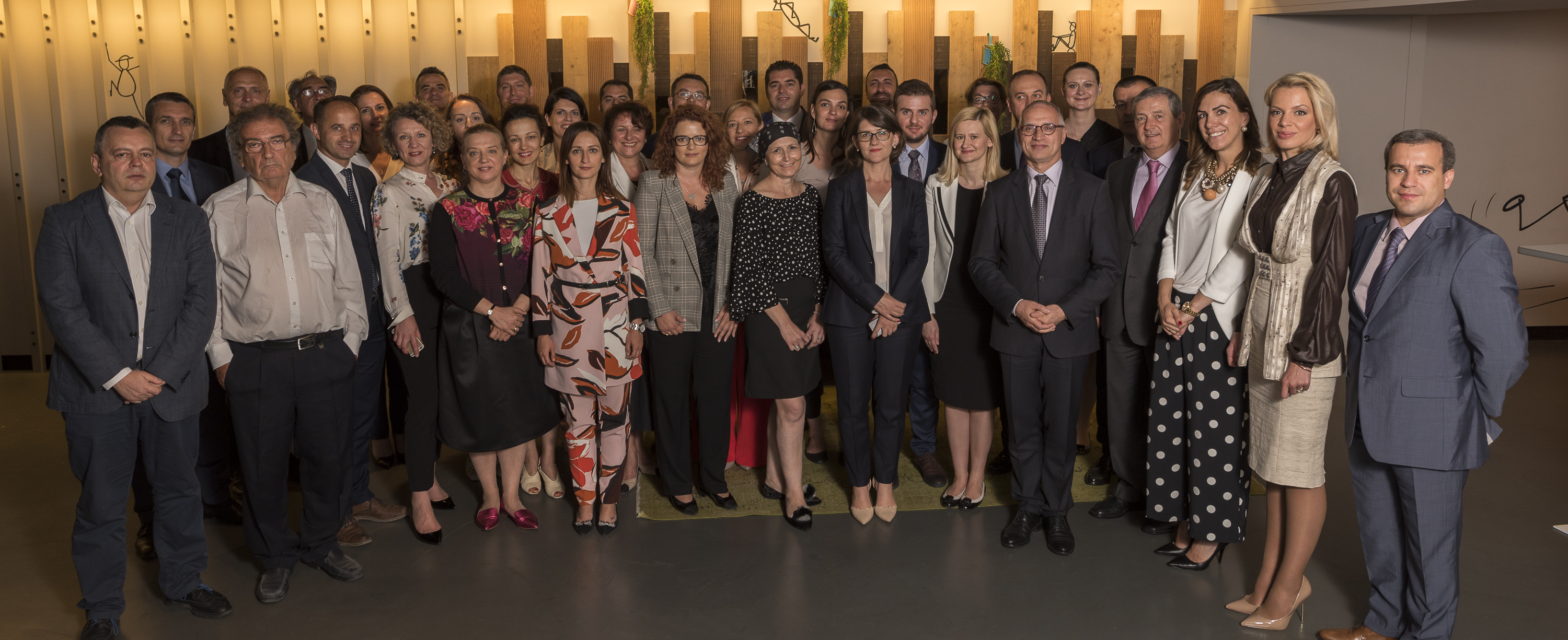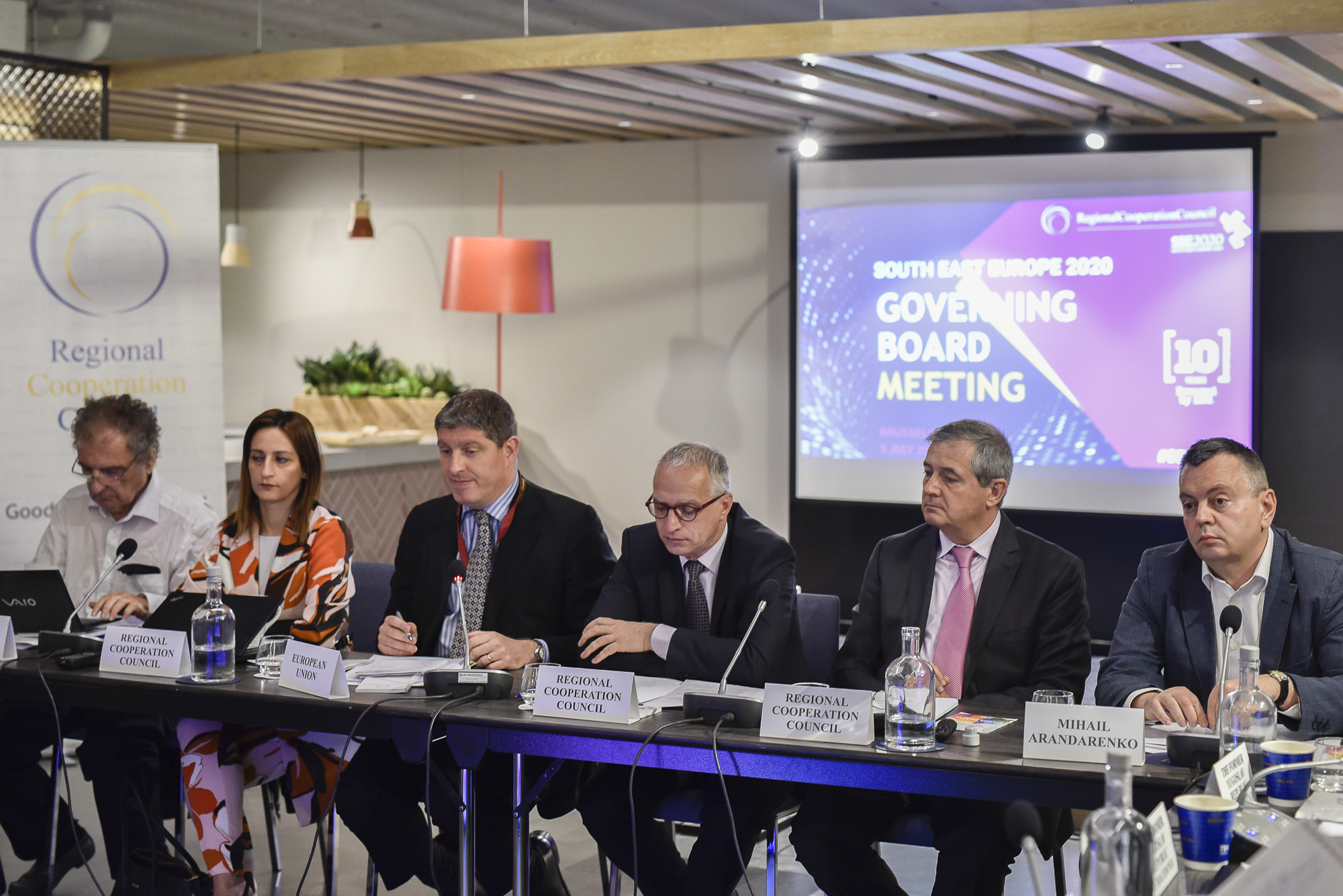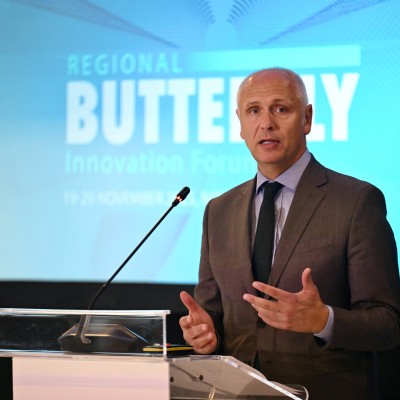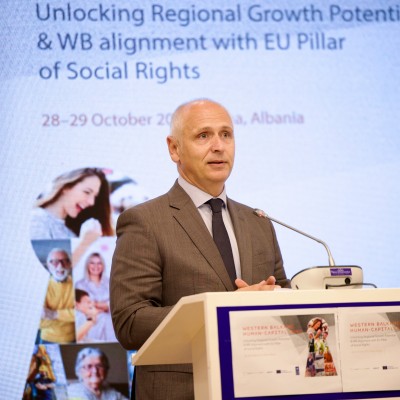Major milestone in SEE 2020 Strategy implementation: Western Balkans ADDS more than 600 000 JOBS
05 July 2018

Participants of the 5th Annual meeting of the Regional Cooperation Council’s (RCC) South East Europe 2020 Strategy (SEE 2020) Governing Board, held in Brussels on 5 July 2018 (Photo: RCC/Jerome Hubert)

RCC Secretary General Goran Svilanovic (3rd from the right) presents Annual Report on Implementation of South East Europe 2020 (SEE 2020) Strategy at the meeting of the Strategy's Governing Board in Brussels, 5 July 2018 (Photo: RCC/Jerome Hubert)
Brussels – Governing Board of the Regional Cooperation Council’s (RCC) South East Europe 2020 Strategy (SEE 2020) endorsed the 2018 Annual Report on Strategy’s implementation (ARI), at its fifth meeting held in Brussels today, in the eve of the presentation of the RCC’s Balkan barometer 2018.
The main finding of the report shows that, since the beginning of the SEE 2020 implementation, the region added more than 600 000 new jobs, which is a major milestone, especially bearing in mind that due to the global economic crisis the region was continuously losing jobs for a few years in a row.
Goran Svilanovic, Secretary General of the RCC expressed his satisfaction over the encouraging results the region is showing, adding that there is still a lot of work ahead of us.
“I am happy that the Western Balkans has resumed the growth path, having added more than 600 thousand jobs to its economies since 2010 and half a million highly educated people to its workforce. The region also expanded its trade by additional EUR 33 billion and decreased its trade deficit from -23.1 to -19.7 percent of GDP (Gross Domestic Product) over the last 7 years through strong export performance, signalling increased competitiveness of its products and services on the international markets”, explained Svilanovic.
However, these developments, while encouraging, “would not be sufficient to lift all boats and ensure faster convergence with the EU. The regional cooperation framework has been strengthened with several initiatives, including the emergence of the Berlin process, the Western Balkans Six cooperation framework and the start of the implementation of the Multi-Annual Plan for Regional Economic Area (MAP REA), as approved by WB Leaders in Trieste in July 2017. And together with the region, we are all working tirelessly on this”, added Svilanovic.
Nicholas Cendrowicz, Deputy Head of Unit for Regional Co-Operation and Programmes for the Western Balkans within DG NEAR reminded that the EU’s Enlargement Strategy released earlier this year provides a credible path for EU membership of the region and outlines a comprehensive road map for the region’s governments, economies, and societies at large, adding that the Strategy places regional cooperation at the heart of that credible European perspective.
“The region is on a good path, but more efforts need to be invested in order to reach the goals set by your leaders, and the European Union, as always in the past, will be by your side all the way, as it is our common interest to have this important region economically strong and committed to the EU ideas and future.
The Governing Board representatives from the individual economies presented their actions focused on achieving specific targets and shared the best practice examples among each other.
Building on last years’ experience, a special session has been dedicated to informing the participants about the European Commission’s views on EU’s post-2020 framework. This discussion is to give a basis for consideration to the SEE2020 Governing Board of the regional plans beyond SEE 2020 Strategy.
The SEE 2020 Governing Board participants include ministers, deputy ministers and senior officials from the ministries responsible for the EU integration; SEE 2020 National Coordinators and National IPA Coordinators. Its main task is to analyse the progress achieved in the previous year by adopting the SEE 2020 Strategy Annual Report on Implementation (ARI) and to initiate the new governance cycle of the SEE 2020 Strategy. The SEE 2020 Governing Board meets once a year and provides the opportunity to issue guidance and recommendations to the RCC Secretariat and other participants in the implementation of the Strategy.
South East Europe 2020: 2018 Annual Report on Implementation
INFOGRAPHICS – SEE2020 Annual Report on Implementation
 This Project is funded by the European Union
This Project is funded by the European Union



